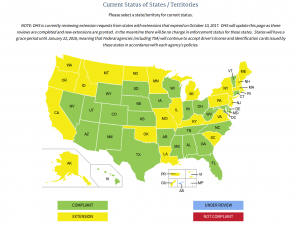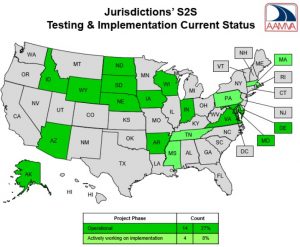FOIA request for information about DHS “Extreme Vetting”
Despite a “shell game” of changing program names, most recently “Visa Lifecycle Vetting”, the general intent of what the DHS and President Trump previously refered to as the “Extreme Vetting Initiative” is clear and has remained unchanged:
- To expand the ongoing unconstitutional warrantless and suspicious surveillance of refugees, asylum seekers, immigrants, foreign residents, and US citizens who travel internationally, so that this dragnet sureveillance will be carried on continuously rather than only in conjunction with specific controlled actions such as vsia issuance or entering or leaving the US, as though international travel were per se probable cause for search and surveillance rather than the exercise of a right; and
- To convert the present systems for making decisions as to who is or is not issued a visa or electronic “travel authorization“, allowed to enter or leave the US, or allowed to exercise their right to travel by common carrier, which are already based on pre-crime profiling, into a system of continuous pre-crime policing under which DHS pre-cogs can assign extrajudicial adverse consequences at any time, not just when individuals are attempting to engage in specific controlled actions.
While the DHS has made its intent clear, it has provided few details about who would be subjected to this “vetting”, what data would be used as inputs to the pre-crime prediction system, what algorithms would be used to make predictions, or what procedures would be followed in assigning consequences. More of this information has been provided in “Industry Day” briefings to private contractors to which these extraducial functions would be outsourced than to the public.
In November 2017, we joined dozens of other organizations in a letter to the Secretary of Homeland Security opposing and requesting more information about this program.
The response to our letter was a cursory brush-off providing no further information.
So this month, as part of a coalition led by Muslim Advocates, we filed a request under the Freedom of Information Act (FOIA) for more information about these DHS programs, including infomation about outsourcing of “vetting” to private conteractors and about DHS monitoring of social media.
We requested expedited processing of our request, but we don’t expect a prompt response. The DHS has a dismal track record of noncompliance with FOIA deadlines. But we hope that this request will eventually help us learn more about DHS surveillance and control of immigrants, foreigners, and travelers, including which companies are building the infrastructure of this police state.

